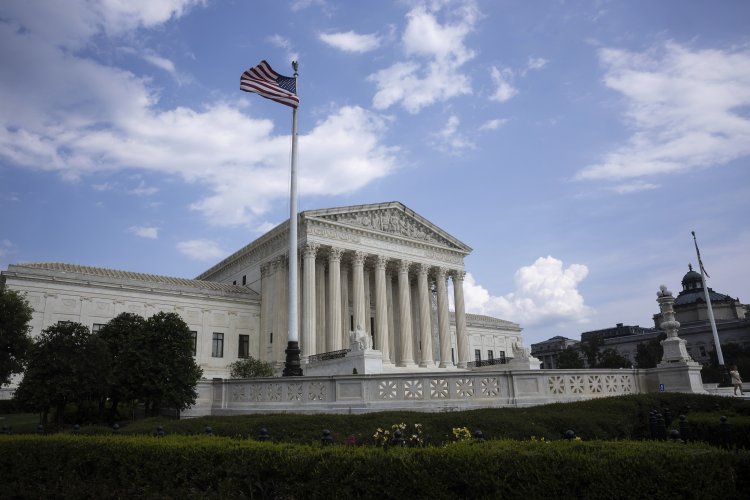Supreme Court to consider Trump’s proposal to initiate his plan to terminate birthright citizenship
The court will examine a significant technical question regarding the power of lower-court judges to grant extensive injunctions that can halt a president’s policies on a national scale.

However, the court will not be determining the constitutionality of Trump's attempt to eliminate birthright citizenship just yet. Instead, it will address a more technical issue that carries significant implications: the extent of lower-court judges' authority to issue broad injunctions that prevent a president's policies from being implemented nationwide.
Three federal judges have independently issued nationwide injunctions against Trump's order on birthright citizenship, asserting that it violates the 14th Amendment, which is widely interpreted to guarantee citizenship to nearly all individuals born in the U.S.
In response, last month, the Trump administration filed emergency appeals requesting that the Supreme Court either narrow or lift these injunctions. The administration contended that district judges lack the authority to issue sweeping judgments that block policies across the country.
In a brief order on Thursday, the Supreme Court scheduled a special oral argument for May 15 to discuss district judges’ authority to issue such rulings. It is uncommon for the court to hold arguments on emergency appeals, indicating that the justices are taking the Trump administration's concerns seriously.
Should the high court side with Trump regarding the judges' overreach, it could clear the way for the administration to begin enforcing its citizenship policy in some regions of the country.
This policy, unveiled in an executive order on the first day of Trump’s second term, aims to deny U.S. citizenship to children born on American soil to undocumented immigrants or to parents in the country on temporary visas. Many legal experts contend that the policy is in direct conflict with Supreme Court precedent and the wording of the 14th Amendment, which states that “all persons born or naturalized in the United States, and subject to the jurisdiction thereof, are citizens of the United States."
The court’s forthcoming ruling on nationwide injunctions, anticipated in late May or June, will have far-reaching consequences beyond the birthright citizenship order.
Nationwide injunctions have disrupted a wide range of Trump administration policies since the commencement of his second term. The Trump Justice Department has maintained that federal district judges should only have the power to block policies within their respective geographic districts or relating to the specific individuals or groups that brought the lawsuit.
“Years of experience have shown that the Executive Branch cannot properly perform its functions if any judge anywhere can enjoin every presidential action everywhere,” the Trump administration stated in its emergency appeal last month.
Conversely, proponents of nationwide injunctions assert that they represent the only effective means of addressing unlawful government actions.
Anna Muller for TROIB News












